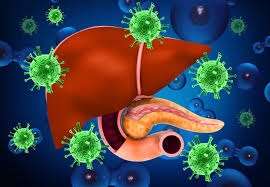Ethiopia has been identified as one of the hotspots for Hepatitis B, according to the World Health Organization (WHO).
The organization has highlighted Ethiopia among the nations where liver diseases are proliferating. This revelation came to light during the recent World Liver Disease Conference held in Portugal.
Recent data collected from 187 countries reveals a troubling trend: the estimated number of deaths from viral hepatitis has risen from 1.1 million in 2019 to 1.3 million in 2022.
Of these fatalities, 83% were attributed to hepatitis B, while 17% were linked to hepatitis C.
Shockingly, on a daily basis, 3500 individuals succumb to hepatitis B and C infections worldwide.
Meg Doherty, the head of the HIV, Hepatitis, and Infectious Diseases Program at the WHO, emphasized during the conference that a staggering 83% of all liver disease-related deaths are caused by hepatitis B.
She also noted that there has been a notable increase in the number of people afflicted by liver diseases, with 63% of the victims being African citizens.
Alarmingly, despite the high prevalence of liver diseases, only three percent of the total victims are receiving adequate medication.
Furthermore, the WHO highlighted the dire situation in Ethiopia, China, Bangladesh, Nigeria, India, and Indonesia, where the disease is spreading in 75% of the affected countries.
Moreover, the organization revealed that a mere one out of five children born in Africa receive the hepatitis vaccine during birth, contributing to the persistently high number of cases.
The latest estimates from the WHO indicate that in 2022, 254 million people were living with hepatitis B and 50 million with hepatitis C.
Half of the burden of chronic hepatitis B and C infections falls on individuals aged 30–54, with 12% affecting children under 18. Additionally, men account for 58% of all cases.
While there has been a slight decrease in new incidence rates compared to 2019, the overall incidence of viral hepatitis remains troublingly high.
In 2022, there were 2.2 million new infections, down from 2.5 million in 2019, including 1.2 million new hepatitis B infections and nearly 1 million new hepatitis C infections.
Shockingly, more than 6000 people are newly infected with viral hepatitis each day, WHO said.
